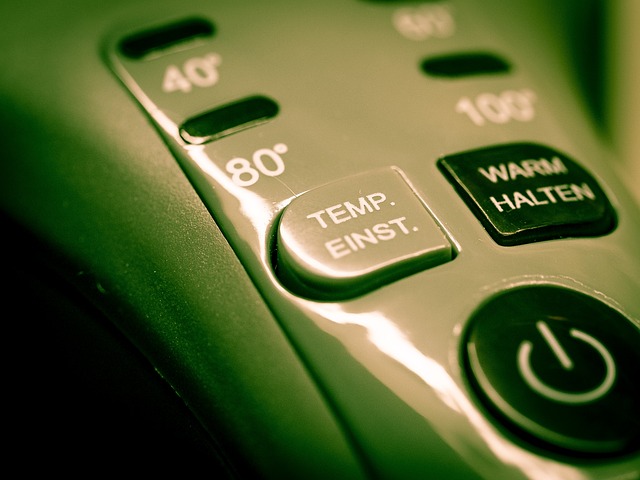Understanding water heater lifespans (8-15 years), influenced by quality, installation, usage & environment. Signs you need a new heater include temperature fluctuations, heating element failures, rust buildup, high energy bills, unusual noises. Regular maintenance extends life but eventual replacement ensures consistent, efficient hot water supply. Know common issues like frequent repairs, sediment buildup, rising bills, inadequate hot water, leaks, and noises to avoid sudden breakdowns. Professional assessment recommended for persistent issues; new installation may be necessary.
Water heaters are essential home appliances, but their lifespans vary widely. Understanding how long your water heater should last and recognizing the signs of wear and tear can help you make informed decisions. This article delves into the factors influencing water heater durability, provides clear indications that it’s time for a replacement, and offers guidance on choosing the right moment for new installation. By understanding these aspects, you’ll know the signs to watch for when considering whether it’s time for a new water heater.
- Understanding Water Heater Lifespan: Factors That Affect Durability
- Common Signs Your Water Heater Needs Replacing
- When to Take Action: Choosing the Right Time for a New Water Heater Installation
Understanding Water Heater Lifespan: Factors That Affect Durability

Understanding Water Heater Lifespan: Factors That Affect Durability
The lifespan of a water heater varies significantly depending on several factors, from initial quality and installation to usage patterns and environmental conditions. High-quality heaters designed for heavy use can last 15 years or more, while standard models might only endure between 8 to 12 years. However, even under ideal circumstances, water heaters eventually wear out, losing efficiency and requiring replacement.
Signs You Need a New Water Heater include unexpected temperature fluctuations in your hot water supply, frequent heating elements failure, rust buildup on the tank (especially at the bottom), excessive energy bills, and loud or unusual noises coming from the heater. Regular maintenance, including flushing and pressure relief, can extend the life of your water heater, but eventually, these efforts may not be enough, necessitating a complete replacement for reliable and efficient hot water provision.
Common Signs Your Water Heater Needs Replacing

Many homeowners take their water heaters for granted until they stop working, often leaving them with an unexpected and inconvenient situation. Knowing the common signs that indicate your water heater needs replacing can help you stay proactive and avoid sudden breakdowns. One of the most noticeable indicators is frequent repairs; if your water heater constantly requires maintenance or repair work, it might be reaching the end of its lifespan. Over time, water heaters accumulate sediment and mineral deposits inside their tanks, leading to reduced efficiency and potential safety hazards. A rising cost of utility bills could also point towards a less-than-efficient unit that is in need of replacement.
Another sign to watch out for is an inability to heat water adequately, such as taking longer than usual to reach the desired temperature or producing only lukewarm water. If you’ve noticed persistent leaks around the base or top of the heater, it’s time to consider a replacement. Additionally, if your water heater makes unusual noise, such as banging, rumbling, or screeching sounds, these could be signs of internal damage or worn-out parts. Remember, regular maintenance and timely repairs can extend the lifespan of your water heater, but eventually, even the most well-cared-for heaters will need to be replaced.
When to Take Action: Choosing the Right Time for a New Water Heater Installation

Knowing when to take action and replace your water heater is crucial for ensuring uninterrupted hot water supply and avoiding unexpected breakdowns. While many modern water heaters come with a lifespan of around 8-12 years, several factors can contribute to their premature failure. If you’ve noticed persistent issues or encountered any of the Signs You Need a New Water Heater, it might be time for an upgrade.
Look out for indicators such as inconsistent hot water temperature, frequent temperature fluctuations, prolonged heating times, or unusual noises coming from the heater. Leaks, corrosion, and a decrease in energy efficiency are also red flags. Regular maintenance can prolong your water heater’s life, but if these issues persist, consider consulting a professional to assess whether a new installation is the best course of action for your home.
Knowing the typical lifespan of a water heater and recognizing the signs you need a new one is essential in maintaining a reliable hot water supply. While factors like energy efficiency, regular maintenance, and proper installation contribute to longevity, most heaters last between 8 to 15 years. By keeping an eye out for common indicators such as inconsistent hot water, strange noises, or rising energy bills, you can make informed decisions about when to take action. When the time is right, choosing a new water heater installation ensures your home stays comfortable and efficient.
